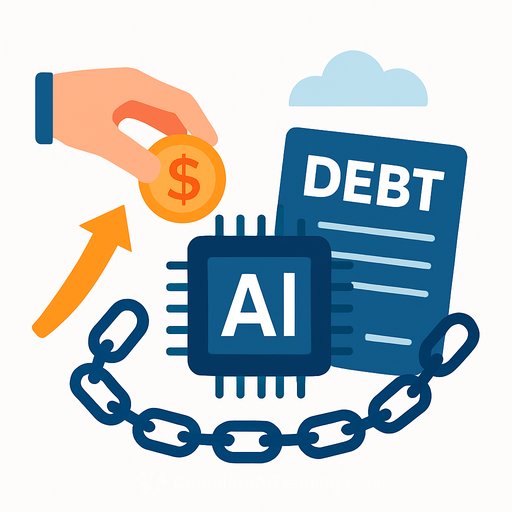OpenAI acquires Roi: What finance teams should know
OpenAI has acquired Roi, an AI-powered personal finance app founded in 2022, and hired its CEO and co-founder, Sujith Vishwajith. Roi will wind down operations, with the final day of service on October 15, 2025.
This move continues OpenAI's push to bring personalization into core software experiences. For finance leaders, it's another signal that AI-native, client-aware tooling is moving from point apps into platform ecosystems.
The deal at a glance
- Transaction: OpenAI acquires Roi; CEO Sujith Vishwajith joins OpenAI.
- Shutdown: Roi's services end on October 15, 2025. The rest of the team is departing.
- Product: AI investing companion with trading and tracking across crypto, stocks, and NFTs, plus an AI assistant that adapts to user profiles.
- Positioning: "Like ChatGPT but it knows your investments and has access to real-time market data," per Roi's App Store listing.
- Funding: $3.6 million raised from investors including Balaji Srinivasan, Spark Capital, Gradient Ventures, and Spacecadet Venture.
Why this matters for finance professionals
- Client personalization becomes default: Expect AI companions that learn portfolio context, preferences, and risk appetite to become baseline in retail and hybrid advisory products.
- Consolidation risk for point solutions: Niche AI finance apps are getting absorbed by platforms. Vendor durability and data exit options should be part of procurement checklists.
- Data advantage shifts: Models tied to real-time market feeds and user-specific holdings can improve signal quality for alerts, rebalancing prompts, and scenario planning.
- Compliance pressure: Personalized AI advice increases scrutiny around suitability, disclosures, and auditability. Model explainability and logging need to be built in, not bolted on.
Product snapshot: Roi
- Mobile AI companion for trading and tracking across crypto, equities, and NFTs.
- Personalized assistant that adapts to user inputs like profession and financial context.
- Promoted as ChatGPT-like, but portfolio-aware with real-time data access.
What to do if your team or clients used Roi
- Export data now: Download statements, transaction history, tax docs, and any model prompts or settings before October 15, 2025.
- Map replacements: Identify alternative brokers, portfolio trackers, or AI assistants with clear data portability and compliance features.
- Update policies: If Roi was part of workflows, revise supervision, recordkeeping, and third-party risk documentation.
- Communicate timelines: Notify affected clients and teams with clear cutover dates and contingency plans.
Industry context
OpenAI has been active on the M&A front this year, acquiring Context.ai (April), io (May), Crossing Minds (June), and Alex and Statsig (September). The broader market is also heating up: Meta invested $14.3 billion for a 49% stake in Scale AI while tapping its CEO, Alexandr Wang, to lead Meta Superintelligence Labs. Google hired Windsurf's CEO Varun Mohan and co-founder Douglas Chen after a separate deal attempt fell through.
Signals for CFOs, CIOs, and Heads of Product
- Build vs. buy: If personalization at scale is on your roadmap, evaluate whether you license model capabilities or ship your own portfolio-aware assistants.
- Data contracts: Prioritize vendors with clear SLAs for market data, entitlements, and audit logs. Latency and accuracy directly affect user trust.
- Governance: Require explainability, versioning, and red-teaming for any AI that produces investment prompts or recommendations.
- Unit economics: Model inference costs tied to real-time data can erode margins. Benchmark cost per active user and set guardrails for usage.
What Sujith Vishwajith said
"Roi has been acquired by OpenAI… We started Roi to make investing accessible by building the most personalized financial experience. Along the way we realized personalization isn't just the future of finance. It's the future of software."
Bottom line
Personalized, model-driven finance is consolidating under large AI platforms. Plan for migration off point apps, tighten AI governance, and prepare to integrate portfolio-aware assistants into client and advisor workflows.
Further resources
Your membership also unlocks:






